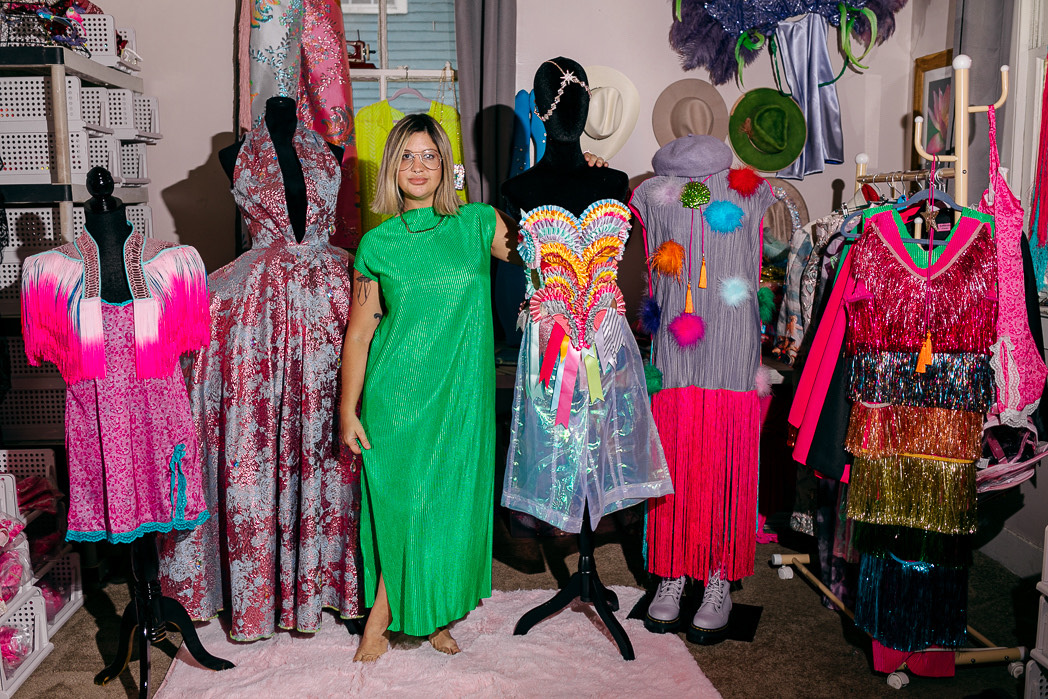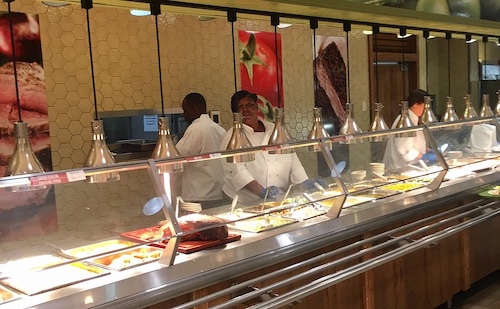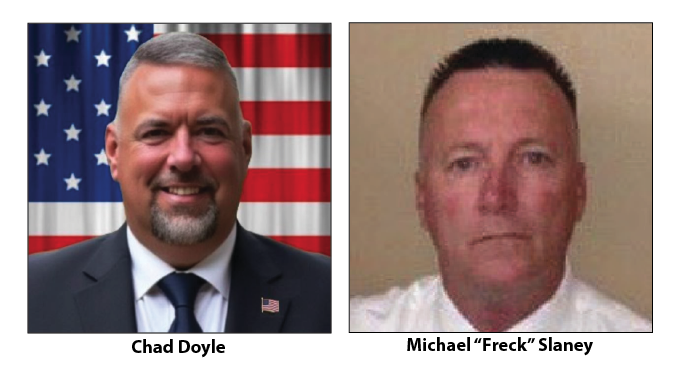Mary Richardson: Exploring the beauty of our planet
Published 7:21 am Friday, June 27, 2025





Mary Richardson is not just a tourist. She’s an explorer who seeks to immerse herself in new environments, embracing diversity and forging genuine relationships with the locals.
“I consider Lake Charles my community — my church is here, my friends are here, half of my family is here. But I also feel a broader connection with humanity,” she said.
Richardson, who shares her travel experiences several times a year through her writings in the American Press, said she travels not only for the beauty she finds when she arrives at the destination but also out of sheer curiosity.
Trending
“There’s a sense of awe with our planet,” she said. “I’m a history major and Joe (her husband) has an undergraduate degree in history and it’s one thing to read about a country, it’s another thing to see it. In Egypt, we were climbing up the Step Pyramid near Cairo and it’s 5,000 years old! It’s only been 2,000 years since the beginning of Christianity and that had already been there for 3,000 years. There’s this sense of timing; you’re only a piece of dust in it.”
When Joe and Mary were courting, Richardson said the couple never had big plans to see the world. That came later.
“We had a Pinto with a stick shift and we would pull a boat,” she said with a laugh. “That’s how we traveled. We would go camping in national parks and state parks.”
He’s from Kentucky, she’s from Minnesota. They met and married in Florida and shortly after moved to Nevada for his work as a civil engineer.
Eventually, Joe was awarded a Fulbright Professorship — a prestigious opportunity for American faculty members to teach abroad — and the program took their family to United Emirates, Sharjah, Namibia, Singapore, Indonesia, Holland and Dubai.
“We started traveling when he started working in these foreign countries,” she said. “He went to Rwanda first, 10 years after the genocide, and that’s when we started thinking about the world. Then he became a department head in Dubai, then he had a Fulbright to Namibia. That’s how I got to see Africa. Very few of the trips have been planned, most came by circumstance where he happened to be. That’s where we got a taste of being part of the world as opposed to being part of a small community.”
Trending
The pair found themselves in Lake Charles in 1986.
“We were passing through back to Gainesville, Fla., where Joe was getting his Ph.D. in civil engineering and we stopped and I had the blackened catfish and I told Joe, ‘I’d like to stay here.’ That’s the truth,” she said.
Both found work at McNeese State University — he as an engineering professor and she as the director of the Banners Cultural Series.
“We don’t appreciate what we have,” she said. “This country is a miracle. One of the miracles is our founding fathers. At one time, they were all there together, forming our democracy, the Constitution, the Bill of Rights. Nothing like that has ever happened in Haiti. Haiti has not had good government not one day in its life.”
She said travel has given her a sense of gratitude and appreciation for the gifts she’s been given.
“It’s not due to you; it’s chance that you were born here and had these opportunities,” she said. “In Guatemala, I developed an appreciation for gratitude. You can look at them and say, ‘Oh, poor thing. You don’t have enough electricity. You don’t have carpets on the floors.’ They don’t care. They’re just grateful for what they do have.”
She said traveling has deeply changed her view of the world.
“We went by a refugee camp on the border of Ethiopia. People have been there for years and they weren’t going to get out. It was a hopeless situation. If I hadn’t seen that I would have known about it in my mind, but not know about it in my heart. It hurts. The tragedy at the border has a face.
“Travel broadens you as a person,” she continued. “I do see myself as a piece of dust in the world as opposed to a little piece of sand in Lake Charles.”
When Joe retired she said that’s when the travel bug really hit the pair — and, as Johnny Cash sings, the Richardsons have “been everywhere man.”
They’ve been to five of the seven continents. They haven’t been to Australia or Antartica. Joe has been to 48 states, Mary said she’s still catching up.
Istanbul is top on her bucket list of sites to see.
“Joe has been to Istanbul but I have not,” she said. “And I’ve been to Morocco but Joe has not. I want to see Istanbul, that’s the kind of architecture that feeds my soul. I’d also like to see Nepal.”
Before retirement, the couple planned two trips a year. Now they take about four.
“We’re in a travel period of our life,” she said. “I feel like time is chasing us. We’re both healthy right now but he’s 80 and I just turned 78. If we’re going to do something, we’ve got to do it now. Age makes you feel vulnerable to chance.”
Mary is an adventurous eater, but Joe “not so much.”
“I’ve had some really bad meals, though, especially if I can’t read a menu,” she said. “In Singapore, I had my first tuna pizza. I will never forget that because it was not a match made of heaven. That was not a good idea.”
Also not a good idea? Shark.
“I tried the shark in Iceland, though I was warned against it,” she said. “That was doubly unfortunate. First of all, it’s something you never want to put in your mouth but second of all, a friend asked us to bring some home and I put some frozen shark in my backpack but the pressure during the flight opened it up and oh boy.”
During the pandemic, the couple realized they needed to see more of the United States.
“We went out west and back to the Grand Canyon,” she said. “Joe had been there many times and I had been only once as a child and I think everyone who has been to the Grand Canyon remembers that sense of awe. That gasp. Some of the most beautiful sights in the world are right here in the United States.”
Their fall trip this year will cover six national parks.
“We’re going to stay at the historic lodges that we looked at in when we were staying in tents,” she said. “And just because we’re staying in these historic lodges, doesn’t mean we’re staying in luxury.”
Traveling is incredibly important for personal growth, cultural understanding and global awareness. It also broadens perspectives, fosters empathy and provides opportunities for learning, skill development and lasting memories, Richardson said.
“I don’t know if you become a better person, necessarily. I don’t know if you become smarter or wiser. I’m not sure about that. I don’t think you can help but become more appreciative and more grateful — not to feel sorry for other people; it’s a different kind of gratitude. I don’t know how to define it. It’s a valuable experience.”










